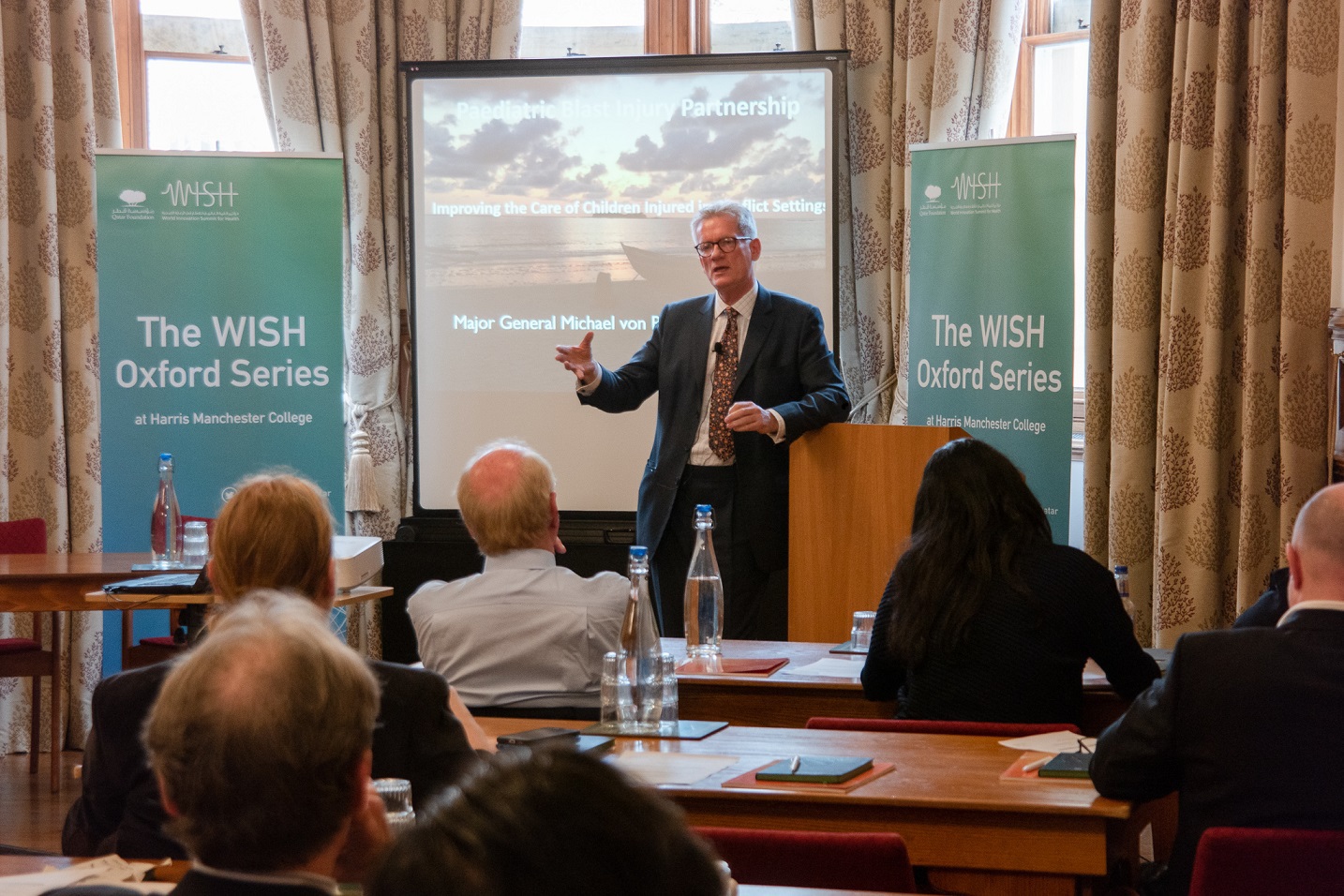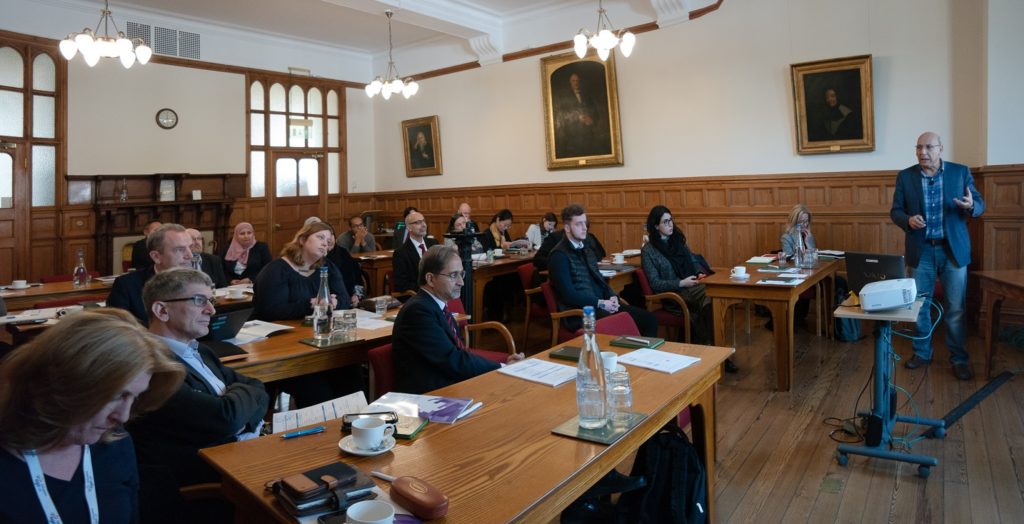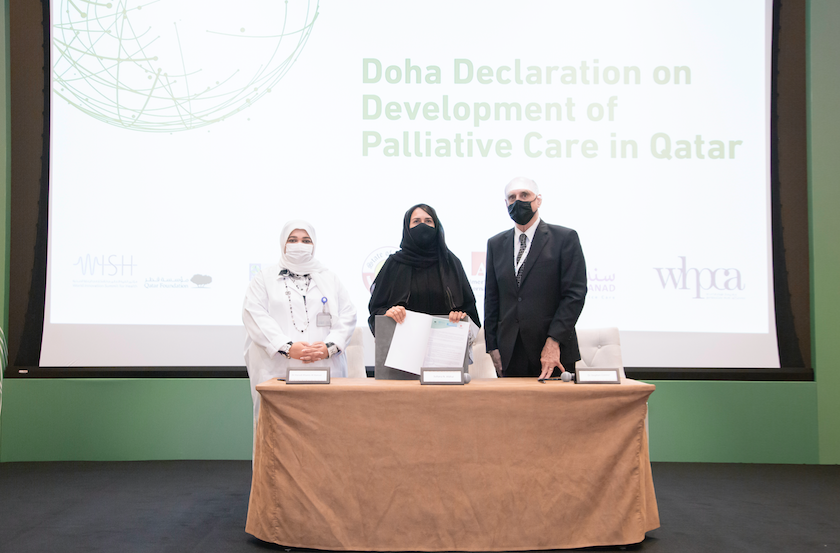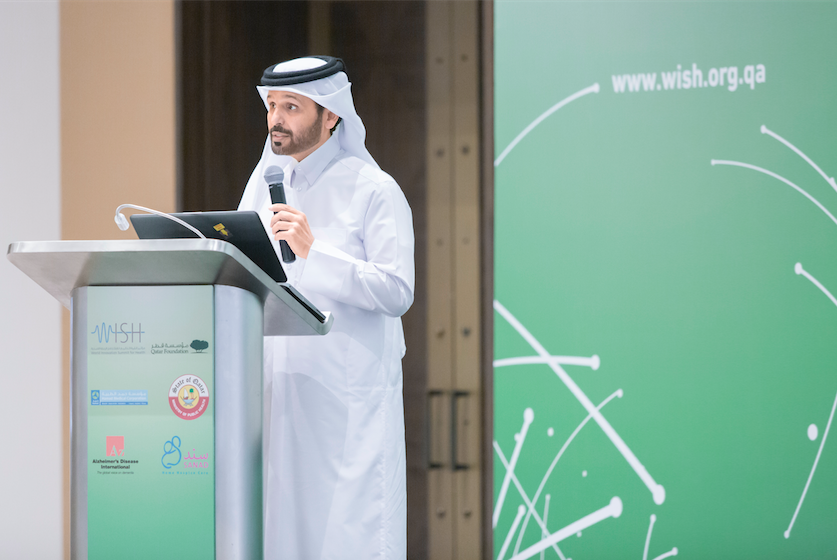WISH Workshops at University Of Oxford Explore Innovative Approaches To Pressing Global Health Issues

The World Innovation Summit for Health (WISH), an initiative of Qatar Foundation (QF), recently brought together stakeholders from Qatar, the UK, and the US for a series of three one-day global health workshops at Harris Manchester College at the University of Oxford.
More than 80 invited delegates took part in sessions titled ‘Innovative Approaches to Dementia Care and Cure’, ‘Adolescent Mental Health and the Online World’, and ‘Philanthropy in Healthcare’. Participants included academics, researchers, healthcare practitioners, innovators, and representatives of charities and advocacy groups.
The first day of presentations and workshops focused on dementia, and featured a presentation by Dr. Omar El Agnaf, Executive Director of Qatar Biomedical Research Institute (QBRI), part of Hamad Bin Khalifa University – a member of QF – and Dr. Rayaz Malik, Professor of Medicine at Weill Cornell Medicine-Qatar (WCM-Q) – a QF partner university. Dr. El Agnaf and Dr. Malik outlined the groundbreaking work being carried out in Qatar to identify biomarkers that can detect dementia earlyand explained how timely detection has been proven to improve both ongoing care and long termoutcomes.

Also on day one, representatives of UK-based Alzheimer’s Disease International presented on the advocacy work being done globally to support people with dementia and to find a cure.
The second day of the series started with a presentation of the findings and recommendations of the 2018 WISH report on anxiety and depression by report co-author Thomas Canning, followed by a session by Dr. Shekhar Saxena, Visiting Professor of Public Health at the Harvard T.H. Chan School of Public Health, titled ‘The Mental Health of Young People and Technology: A Net Benefit’.
Before participating in workshops, delegates heard from Dr. Ivo Vlaev from the Behavioural Insights Unit at Warwick Business School about the ‘nudge’ theory, where subtle and indirect suggestions are used to influence behavior, and how it can be used to positively impact young people facing mental health challenges.
The final day featured two presentations on the topic of the interactions between philanthropy and global health that focused on how best to ensure that financial donations reach the people most in need. Dr. Robert Walters, a trustee of the charity Orbis International, gave his overview of the sometimes complex relationship between donors and charities, after which Kurt Shuker and Major General Michael Von Bertele from Save the Children provided an insight into how their charity deals with philanthropic donations on a project-by-project basis.
All three days featured interactive sessions, during which delegates were encouraged to present novel ideas with the potential to advance innovative thinking around each day’s topic.
In addition to WISH, QBRI, and WCM-Q, Qatar was also represented by delegates from Hamad Medical Corporation.
Speaking after the event, Sultana Afdhal, Chief Executive Officer of WISH, said: “This is the second year we’ve held interactive discussions at the University of Oxford. This year’s presentations and workshop sessions have provided the Qatar-based research team at WISH with extremely valuable insights that can be used to shape and develop any future exploratory efforts we undertake in three important areas of pressing concern for healthcare practitioners and policy makers around the world.”



